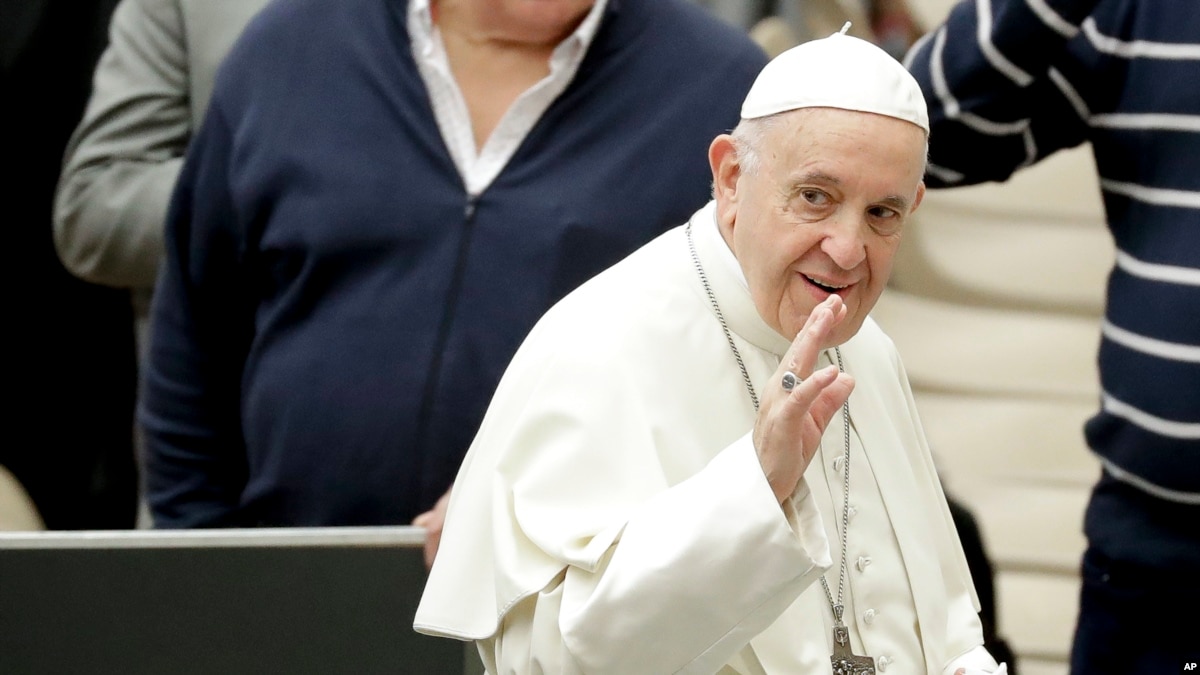
In what appeared to be a setback for Seoul's diplomacy to ease tensions on the Korean peninsula and nudge North Korea into embracing openness, the Vatican said Friday Pope Francis is unlikely to visit North Korea next year.
The possibility of the landmark visit was raised when South Korean President Moon Jae-in, during a private meeting with the pope in October, conveyed North Korean leader Kim Jong Un's desire for a papal visit to the isolated country. The Vatican responded positively, saying a formal invitation from North Korea was necessary.
Given the necessary preparations and the pope's busy schedule, however, the visit is not likely to come next year, according to a Vatican official who asked to remain anonymous.
"I don't see it happening in 2019 … too many other trips on the schedule, or in the plans. And they are all easier than N. Korea!" the official said in an email message sent to VOA's Korean Service.
Inter-Korean relations
North and South Korea have held three summits this year amid a diplomatic thaw. Moon sees the possible visit as an opportunity to enhance cooperation and engagement with the North.
No pontiff has ever visited North Korea and such a visit could be contentious for the pope. North Korea often has been condemned as one of the worst human rights violators in the world.
Robert Gallucci, chief U.S. negotiator during the 1994 North Korean nuclear crisis, cautioned against a possible papal visit to the North.
"He might legitimize a regime which is quite insensitive to human rights issues in its own country," Gallucci said during a recent interview with VOA.
Concern over human rights
Roberta Cohen, who served as deputy assistant secretary of state for Human Rights under the Carter administration, said the pope should raise the issue of religious freedom in the North, if such a visit takes place.
"The pope needs to be raising the question of religion and freedom of expression, and also the release of Christians from prisons," Cohen said.
North Korea's constitution guarantees freedom of religion, but open religious activity is not allowed, according to human rights groups and defectors.
Since 2001, the United States has designated North Korea as a "Country of Particular Concern" for religious freedom.

No comments:
Post a Comment